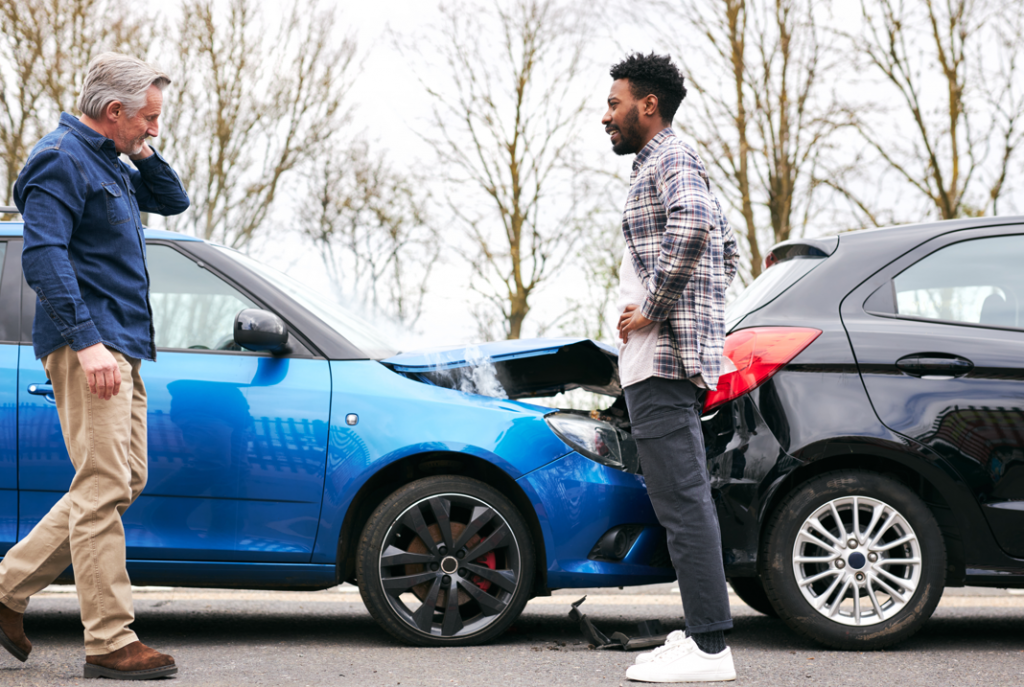 I previously authored a blog titled, “I just Rear-Ended Someone: Now What?” which provided some insights about what to do (or what not to do) if you find yourself in the unenviable position of having rear-ended someone. This blog is a companion to that, of sorts, although from the alternative (and even more unenviable) position of being the person who was rear-ended.
I previously authored a blog titled, “I just Rear-Ended Someone: Now What?” which provided some insights about what to do (or what not to do) if you find yourself in the unenviable position of having rear-ended someone. This blog is a companion to that, of sorts, although from the alternative (and even more unenviable) position of being the person who was rear-ended.
It is an all-too-common scene: a driver is minding their own business, dutifully stopped at a red light or a stop sign, when they are suddenly and violently crashed into from behind due to the negligence of another driver. If this happens to you, here are some tips to keep in mind:
- Check for injuries. First and foremost, assess for injuries to yourself, any passengers in your car, and the driver and passengers in the other car. Call the police and ambulance service immediately if necessary. Remember: cars and belongings can be replaced, but people can’t; tend to injuries before worrying about any property damage.
- Contact the police. Once any medical emergencies have been tended to, call the police (if you haven’t done so already) so that they can document the accident. You should do this no matter how minor the accident might appear to be.
- Get insurance information. Be sure that you obtain the full name, address, telephone number, and insurance information of the driver who hit you. You should also make note of the make, model, and license plate number for their car. If you have a cell phone handy, and if the other side is being cooperative, ask to photograph their license and/or insurance card.
- Take pictures. Document, document, document! If you are able and it is safe to do so, you should take photographs of any damage to your car, the other vehicle, and anything else that was damaged in the collision.
- Do not admit fault. It is human nature for people to want to apologize or to accept blame for something, often out of a simple desire to appear polite or non-confrontational. Resist that urge, as anything you say to the other side can (and very likely will) be used against you in the event of a lawsuit. To be sure, you can certainly be polite and cordial (and there is no need to be rude or hostile), but don’t take the blame for something that wasn’t your fault.
- Don’t downplay your injuries. Similarly, after being rear-ended many people often downplay the extent of their injuries at the scene (whether in statements to the other driver, the police, the ambulance crew, etc.) out of fear of being perceived as being whiny or dramatic. Again, resist that temptation as this will likely come back to haunt you if you have to file a claim or lawsuit against the other driver. Don’t lie or exaggerate your injuries, but don’t downplay them either. As mom always said, honesty is the best policy.
- Seek follow-up medical care as needed. Often, people may not feel injured enough to call an ambulance at the scene of the accident, but then they later begin to experience pain and other symptoms in the hours and days that follow. It is common for people to see if they can “tough it out” for days or sometimes weeks before seeing their doctor or going to the emergency room. Don’t do that. If you are in pain or have other problems, see your doctor or go to the emergency room as soon as necessary. The insurance company and their lawyers love nothing more than to point to a long delay between the accident and the first instance of treatment as a reason for denying (or reducing the value of) a personal injury claim.
- Talk to a lawyer. Last, but certainly not least, speak with an experienced personal injury lawyer. Personal injury attorneys often work on a contingent fee basis (meaning they do not collect a fee unless you get a settlement or verdict), and they can help you get fair compensation for the injuries that you suffered.
Disclaimer
These materials have been prepared by Rudman Winchell for educational purposes only. They should not be considered legal advice. The transmission of this information to you is not intended to create a lawyer-client relationship. Readers should not act upon this information without seeking professional counsel. You should not send any confidential or private information to Rudman Winchell until a formal attorney-client relationship has been established, in writing.
